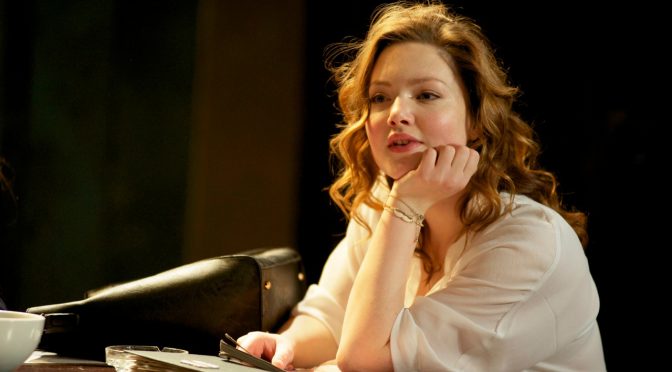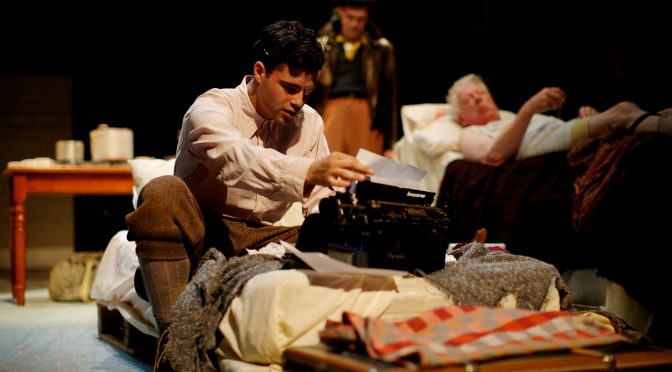In most productions of Three Sisters, the eponymous heroines yearn to leave their provincial home and return to Moscow. In a new version of Chekhov’s play, from Anya Reiss at the Southwark Playhouse, the sisters want to return to London. Well, who wouldn’t? Chekhov’s tragic melancholia is still present, along with his philosophical preoccupations and essential concerns, but the action occurs in the Middle East in the present day.
It isn’t a perfect transposition. The sisters endure their famous ennui in the shadow of a military compound and embassy. Where they are and what they are doing there isn’t made explicit, which is vaguely frustrating. It seems somehow off to hear soldiers in modern fatigues wishing for real work. With all the phones and iPads pushing you into the present, attitudes to marriage jar and the stiff upper lips seem incongruous.
But Reiss’ twist with the setting brings home the isolation of Chekhov’s characters. There’s a nice motif of superstition, arising from people under pressure, and an unblinking eye on the dramatic potential of the scenario. I suspect inconsistencies aren’t a big concern: adding karaoke to Chekhov indicates a mischievous streak. Incidentally, the humour generally owes less to the original source than the rest of the production. There’s an energy to the writing that powers the whole thing along. Best of all, these sisters are far from sententious and self-pitying – which are welcome interpretations.
The production itself is of the highest standard. Russell Bolam directs with a deft touch; there’s plenty of action, a swift pace and performances full of natural feeling. Again, issues arise from Reiss’ new version. The servants and Masha’s cuckolded husband being local proves distracting (especially in relation to a fine performance from Tom Ross-Williams). Both Michael Garner’s Doctor Chebutykin and Paul McGann’s Vershinin – the voices of age and experience – seem flattened and these talented actors a little wasted.
The focus is on youth, and a trio of performances from the leads does not disappoint. Olivia Hallinan plays Olga with a resolute edge, all self control until a final tragedy (watch her legs as shocking news is broken to her). Holliday Grainger takes onboard the realism in the production: fresh and appealing as the young Irina and a captivating stage presence. It’s a photo finish (and naughty of me to encourage sibling rivalry), but I thought Emily Taaffe best – her impassioned Masha has a constrained energy that is riveting and her performance packs the most emotional punch. These three high achievers make this interesting production well worth seeing.
Until 3 May 2014
Written 9 April 2014 for The London Magazine


